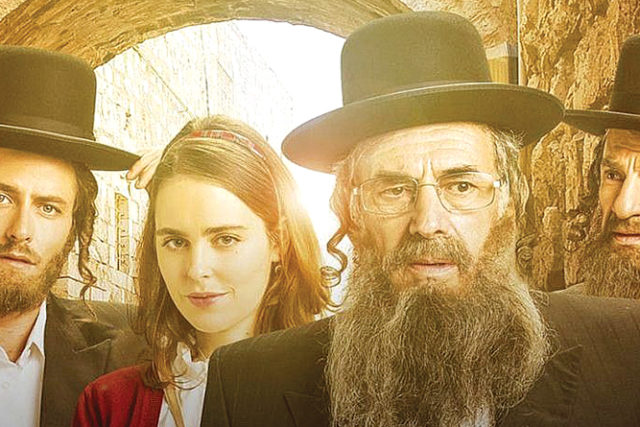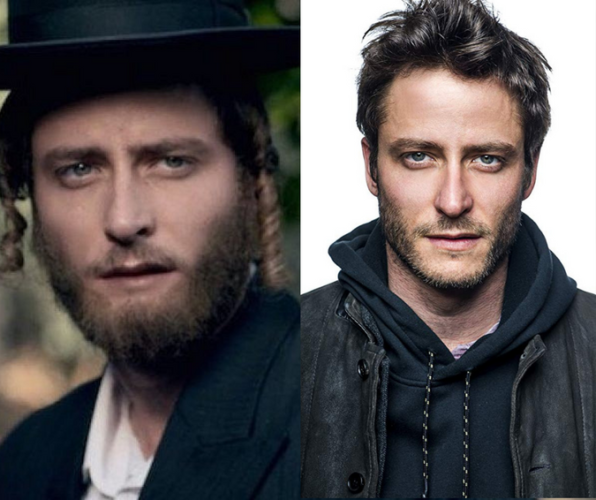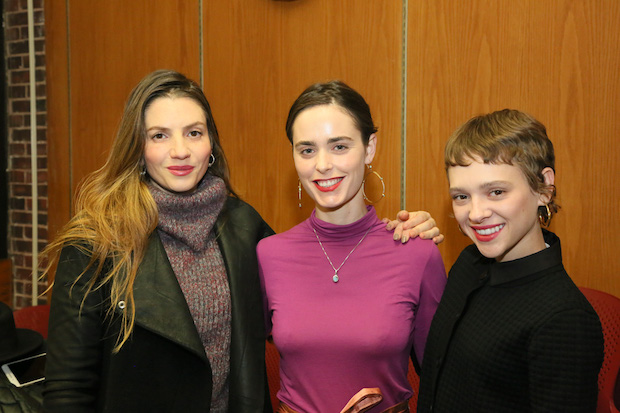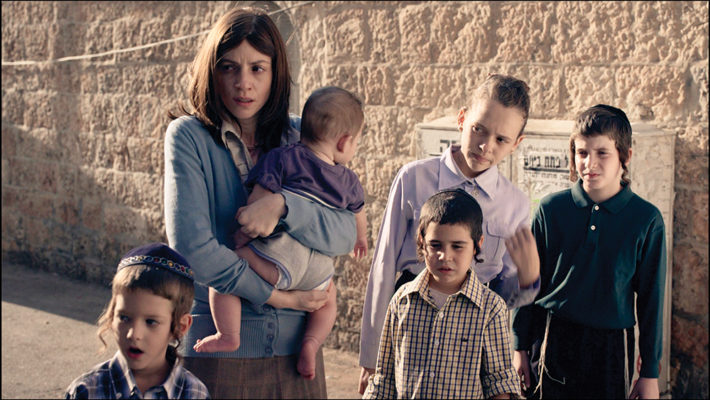Estimated reading time: 5 minutes
By Pierre Scordia & Annie Clein
Shtisel is an Israeli series following the daily lives of a fictional Haredi (ultra-Orthodox Jewish) family living in Geula, Jerusalem. This soap opera may not immediately appeal to an atheist or secular audience but is fascinating seen from an anthropological perspective. Beneath their old-fashioned garb, the characters turn out to be touching, surprising, endearing and sometimes even very funny.
The three seasons mainly focus on Akiva – a young man both sensitive and artistic – and his love life. In the first season, he becomes infatuated with an older widow and during the next two seasons, he’ll fall in love with two very different women who, like the widow, seem to appreciate his talent. Their admiration especially touches Akiva because in his deeply religious and restrictive community, secular art has no real place. His family, including his well-meaning but opinionated and controlling father (brilliantly portrayed by Doval’e Glickman) increasingly consider him to be a misfit, both in terms of his lifestyle and his non-marital status. The role of Akiva is superbly played by Michael Aloni, who starred in the internationally award-winning gay film “Out in the Dark”.
What may surprise viewers is the existence of a certain form of “customary freedom” with dating in this Haredi community; we witness engagements being broken off and couples finding the love of their life without a matchmaker, whereas all other aspects of life are ruled by strict habits and customs.
Furthermore, the series shines a light on the daily struggle faced by Haredi wives. It is often the case that household income depends almost entirely on their salary, while their husbands devote themselves to full-time study of the Torah and Talmud, receiving only a small subsistence stipend from the kollel, their place of study. Had the State of Israel not provided generous allowances for them, one wonders how these ultra-Orthodox families would have been able to afford their large families and keep up their ‘anachronistic’ way of life.
Women in these communities are under enormous pressure to bear children. In this regard, we follow the life of Akiva’s sister, Giti (played by Neta Riskin) and that of her daughter, Ruchami (played by Shira Hass – the main actress of the successful US mini-series Unorthodox). Such socioreligious pressure can become a burden for these women preventing any form of emancipation and severely limiting career choices. In some circumstances, it may even endanger a woman’s health.
As the series develops, many taboos within this community are faced head on: adultery, abortion, mental health, inbreeding and even racism towards Jews from a different background, such as the Sephardim. Some topics are addressed with much humour: we witness community gossip and the use of machines and electronic devices such as cars and smartphones. In an especially comical episode in Season 3, Akiva’s sister-in-law secretly takes driving lessons and, having passed her driving test, buys a car to use to drive herself to work; she and her ultra-religious husband covertly use the car for their greatest happiness. We thus realise that there can be a certain hypocrisy within this tight-knit community, where it can become difficult to resist the temptations and convenience of the trappings of modern life.
Although their restricted lives are in many ways predetermined due to a dogmatic set of rules, leaving little room for individualism, the vast majority of ultra-Orthodox Jews seem content with a life of tradition and solidarity. Modernity and loneliness would thus be the prerogative of the West; however adapting to life outside this micro-society is not at all easy for the few who take the huge step of leaving. Shtisel undoubtedly forms a cultural bridge, because we as viewers soon find we are no longer paying attention to the odd appearance of the characters (their dress code deriving from 19th-century Ukraine) and gradually begin to care about their stories and complex, colourful personalities.






